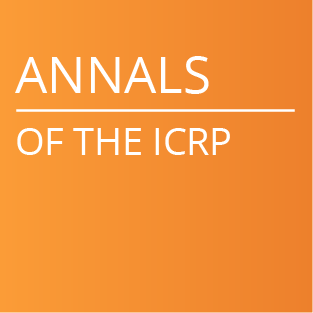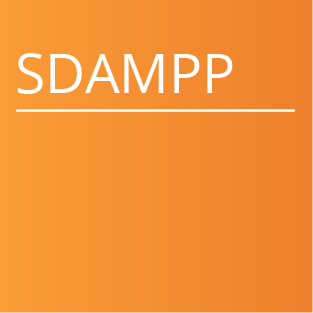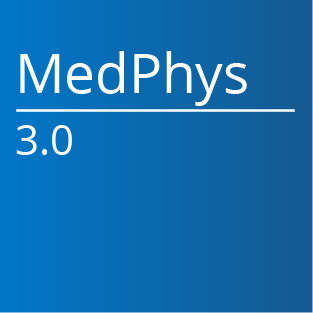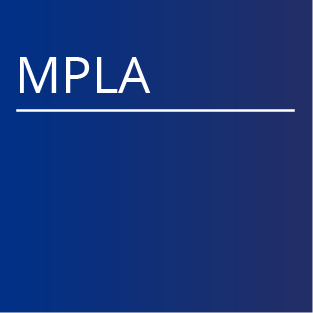Career Advice:
Frequently asked questions about networking
Career coach Alaina G. Levine offered STEM career networking advice in her recent webinar.
By: Alaina G. Levine
On October 1, 2014, the American Institute of Physics Career Network and its partners (AAPM, AAPT, APS Physics, AVS, the IEEE Computer Society, Physics Today, and SPS) hosted a webinar entitled “Network Yourself to a Great Career,” featuring myself as the speaker. You can watch the webinar here.
As my readers know, I am a believer in the power of networking to unlock hidden opportunities for advancing both your career and your discipline. I have benefited personally and professionally from networking in countless ways – in fact, this column is a result of networking (as is my soon-to-be published book, Networking for Nerds!) So it is always a pleasure and an honor to discuss the virtues of networking with other enthusiastic and ambitious individuals like you.
As I have discussed, networking is not about what you can get, but about what you can do for another. Successful networking conversations allow both people to share what they do and consider how they can help each other; it is the foundation of building alliances. In the webinar, we discussed elements of successful networking: how to open the doors to hidden jobs and career paths, how to network at an event, and how to find people with whom to network. It was recorded and you can view the webinar here.
I wanted to take the opportunity to answer some of the great questions asked during the webinar, so that everyone can gain value from the information. Below you will see both questions and answers; as always, if you have additional questions or suggestions, please email me at alaina@alainalevine.com.
Questions have been edited for clarity, grammar and spelling.
- What if you are a recent graduate with a BA and do not have the expertise to initially add value?
- What is the best way to network into a STEM career if my current job has nothing to with it?
- Is it okay to say to people whom we first meet, “Hello, I am so and so: tell me your problems and I will solve them”?
- I think I would rather make small talk first, things like work location, educational background, and family, and then once you establish trust, talk about problems. Is that OK?
- If for some reason you feel a bad reputation has been established, how can you repair it?
- Can you comment on the importance of a thank-you email after a phone interview?
- I'm 61. I've never networked. How should I start?
- Could you give us your thoughts on having personal websites? Have you found that they are useful for building your brand?
- You suggest that we not hand out a Curriculum Vita (CV) at gatherings, but why?
- What modifications would you suggest for a senior researcher looking to change from academia to industry?
- How important is it to look for internships in order to seek a full-time job opportunity?
- It seems that some people do not respond to emails. At that point would you recommend giving them a call, and how might you do that without seeming like a nuisance?
Q: What if you are a recent graduate with a BA and do not have the expertise to initially add value?
A: Most early-career professionals (in any field or sector) share the common misconception that as a person just starting out, they have nothing to offer in relationships with more senior members of their field. “Why would Dr. X want to network with me?” they might ask themselves. “I am too early in my career to provide any sort of value.” But this idea is absolutely false! No matter where you are in your career, whether you are a freshman, a newly minted postdoc, just starting out in your first job after your last training experience, or re-launching a career in a completely different sector, you have something of value to provide others.
I know this from my own experience, and from counseling many junior and senior members of various disciplines. I think that I realized the extent of what early career professionals can provide, and how they are viewed by many leaders in the field, when I heard it directly from Nobel laureates. In 2012, I had the honor of attending the Lindau Nobel Laureates Meeting in Lindau, Germany (link). This conference features Laureates from a specific field (in my case, the subject was physics), and hundreds of grad students and postdocs from all over the world who apply to attend this amazing event for free. While at the meeting, I asked several of the laureates why they come to this affair time and again, and they were unequivocal: they attend because they want to network with the early career scientists and engineers in attendance. They told me that those early in their careers can help them find the inspiration and ideas to take their research into novel directions. They have been close to their scientific problem for decades, but they recognize that fresh sets of eyes and brains can potentially give them a breakthrough. Furthermore, the laureates know that the early career professionals will carry the Nobels’ work into the future, so they have the impetus to network and collaborate with them right now.
It is one challenge to know that you have value, and another to identify what exactly your value is. Part of your value is your attitude: when you are excited and eager to learn and contribute to your field, senior members of your discipline respond very positively. Another aspect of your value is your current experience, which includes problem-solving abilities in STEM learned from classes and projects, and leadership and business skills gained from volunteering and part-time jobs. Make a list of all the “experiences” you have had, and all the skills you have gained from each, so that you can start to put a name and detail to your value.
When you network, that is engage in conversations with potential partners, ask questions that allow you to learn about what they are working on and what problems they need to solve. Look for opportunities to share your own experiences, skills and interests with them and for chances to solve problems that they might not be able to solve on their own. This networking technique takes practice, but the more you do it, the better you will become at both articulating your true value and attitude, and discovering how your value might help the other person.
Q: What is the best way to network into a STEM career if my current job has nothing to with it?
A: The best way is to identify “Networking Nodes” that bring people in the STEM area of your interest together. A Networking Node could be a journal, a LinkedIn Group, a conference, a professional society or a local event that focuses on STEM (such as a Science Café). LinkedIn is especially fantastic for this purpose because if you want to work in physics, there are numerous physics-related groups that you can join and whose membership includes people with whom you can network.
Q: Is it OK to say to people whom we first meet, “Hello, I am so and so: tell me your problems and I will solve them”?
A: No, that shouldn’t be your opening line when you first meet someone. But after making someone’s acquaintance, like at a conference, as you engage them in conversation, it is certainly acceptable to inquire about what they do and what problems or projects they are working on right now. Then you can continue the discussion by sharing your own experiences and skills that mirror what they have described and asking smart questions about how they work and what their needs are. The goal is to allow the conversation to evolve organically, with both parties providing information. It shouldn’t feel like one person is just peppering the other with question after question.
Q: I think I would rather make small talk first, things like work location, educational background, and family, and then once you establish trust, talk about problems. Is that OK?
A: Yes, that is a fine idea. When you meet someone at a conference mixer, for example, I would start by asking them about what they do and where they work. I often ask people about the best part of their job/organization. We also talk about what brought us together here today, what we think of the conference, some especially good sessions we have attended, etc. Basic conversation starters help to fuel the discussion into deeper territory. When you first meet someone, you don’t have to jump into the heavy stuff right away. You can have your conversation and mention that you’d like to discuss this further and then set up an appointment to do so.
Q: If for some reason you feel a bad reputation has been established, how can you repair it?
A: This is a tough one. If your reputation plummets, it is challenging to fix it, especially with the Internet keeping track of everything. So it would depend on the nature of the bad reputation. If your reputation is being negatively affected by a former colleague or boss whom you can’t confront (because, say, they’re a lunatic), then see what you can do to get excellent recommendations from other people with whom you have worked or are familiar with your brand (promise of value). Don’t list your lunatic former boss as a reference on your applications. Start a blog and write about information that is relevant and valuable to the field and start posting similar things in Groups on LinkedIn and other social media sites so members of your community start to notice you for your brand and intelligence. Ask for recommendations on LinkedIn, and make sure they are visible to the public. The key is to create positive impressions about you (online and offline), so that any negative comments, such as those that could affect your reputation, are out-shouted by the positive ones.
Q: Can you comment on the importance of a thank-you email after a phone interview?
A: The importance of a thank you cannot be overstated. You must send a thank you after a job interview, and you should do so after an informal conversation or informal interview as well. The time they spent with you is time they will never get back and you must express gratitude to them for spending it to speak with you. Furthermore, the thank-you note telegraphs to the other party your excitement about their organization and the prospect of working with or for them. I will write about thank-you notes in a future column, so stay tuned.
Q: I'm 61. I've never networked. How should I start?
A: Where do you want to be? What companies are you interested in? What geographic areas do you wish to work in? What fields are you enthusiastic about contributing to? Once you answer these questions for yourself, look for networking nodes that meet these criteria and allow you to connect with people in these arenas. You can start by examining LinkedIn groups, local MeetUps (see meetup.com), regional events sponsored by a technology cluster or even the chamber of commerce, journals, trade magazines, and other publications that highlight this type of work, events, such as conferences and mixers, professional associations, alumni associations, and even twitter feeds and LinkedIn company profiles. The beauty of networking is that one can start at any age and there is always opportunity to find people with whom to network, if you know where to look and seize the moment.
Q: Could you give us your thoughts on having personal websites? Have you found that they are useful for building your brand?
A: At this point in time, you don’t necessarily need a personal website, as a LinkedIn Profile is sufficient to provide all the information a potential colleague or employer would want to know. However, a professionally-constructed personal website can’t hurt you. As a career consultant and speaker, I have a website that describes my company and its services. If you are interested in being an entrepreneur or a freelancer of some sort, then a website is necessary. But if you are simply looking for a job, and exploring career options, a LinkedIn profile will provide a better return on investment than a website.
Q: You suggest that we not hand out a Curriculum Vita (CV) at gatherings, but why?
A: Giving your resume or CV out at a mixer is just not appropriate: it’s far better to offer your business card, ask the other party for his or hers, and send your CV the next time you connect. If I am at a mixer, holding a plate of food and a drink and my bag, and you hand me your CV, I will have no place for it. It will languish under my armpit. And the last thing you want is for your CV to end up crumpled at the bottom of my bag or dropped on the floor.
Q: What modifications would you suggest for a senior researcher looking to change from academia to industry?
A: Start reaching out to people who work for the companies and industries that interest you. Ask for informal conversations because you are “exploring new opportunities and want to see if there might be an chance to collaborate in some way.” Use the sources mentioned above to find the professionals who are in your targeted industries.
Q: How important is it to look for internships in order to seek a full-time job opportunity?
A: An internship is a great experience to have and can really help to bolster your resume when it comes to looking for full-time work. It can also provide an easy ingress into the company, since the internship is essentially a chance for the company to inexpensively “try” you out and see if you might be a good fit, in terms of both your skills and your personality and attitude. I am finishing up a Guide to Internships for AIP that will be posted online later this year, so please stay tuned for more information about this subject.
Q: It seems that some people do not respond to emails. At that point would you recommend giving them a call, and how might you do that without seeming like a nuisance?
A: After meeting someone, or after sending a cold email (to an individual with whom I have not had prior contact), I will usually wait a few weeks for a response. If I don’t hear back from them, I will email again, in part to confirm that she or he received the first email. If I still don’t hear back, I may call and simply say, “Hi this is Alaina Levine at University of X. I emailed you a few weeks ago about making an appointment to speak. Is this a good time to chat briefly about making an appointment?” This line shows the other person that you are enthusiastic rather than invasive. If they can’t talk now, ask when would be a good time to follow up. If they don’t want to talk with you at all, they’ll make that clear, either with a lukewarm response, or a blunt remark. And if that is the case, don’t worry and don’t take it personally – there are plenty of fish for your net(work).
Alaina G. Levine is a science and engineering writer, career consultant, and professional speaker and comedian. Networking for Nerds, her new book on networking strategies for scientists and engineers, will be published by Wiley early next year. She can be reached through her website or on Twitter at @AlainaGLevine.



















